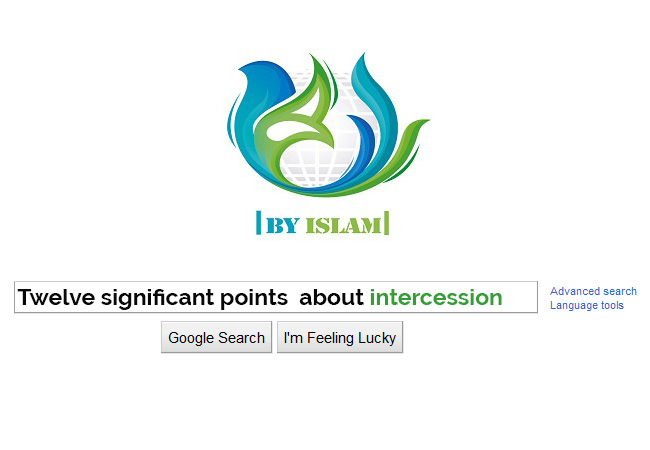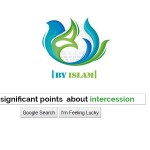Twelve significant points that you should know about intercession/11
 The most important criticisms about intercession
The most important criticisms about intercession
Asking Shafa’a from Anyone other than God is Polytheism
Asking Shafa’a from the intercessor means to call anyone other than God and this is polytheism in worshipping, because God says, “so do not invoke anyone along with Allah.” (72:18)
Answer: The above criticism comes from Wahhabis’ misunderstanding of the meaning of unity of God and polytheism. The true understanding of polytheism and unity of God implies that invoking anyone other than God does not mean polytheism in itself and it is not even forbidden since polytheism refers to cases in which one believes an independent divinity and lordship other than God and Shi’a never believe as such either about their Imams (a) or any other beings but for God alone.
Undoubtedly, invoking Muslims and requesting them for help is a permissible action and they need to help such an invoker as much as they can. On the other hand, when an action is permissible for a person, asking him to do that is permissible as well. When Shafa’a would be permissible for the Prophet (s) and other intercessors, asking Shafa’a from them would also be permissible.
Asking people for making du’a for one is permissible in the view of all Muslims such as that we ask someone, “make du’a for me”; therefore, asking Shafa’a from a person who has permission for that from God, such as he is asked, “make Shafa’a for me before God” is also permissible.
To forgive sins, God invites people to ask the Prophet (s) to make du’a for their forgiveness,
“Had they, when they wronged themselves, come to you and pleaded to Allah for forgiveness, and the Apostle had pleaded for forgiveness for them, they would have surely found Allah all-clement, all-merciful.” (4:64)
Some tried to explain the meaning of this verse so that, people harassed the Prophet (s) and needed to ask him for forgiveness; but through a more careful look into the verse, wrongness of this interpretation can be understood so that, if the Prophet (s) was about to forgive people’s sin about his own rights, the verse needed to say “وَ غَفَرَ لَهُمُ الرَّسولُ” [and the Prophet forgave them] while the verse says, “وَ اسْتَغْفَرَ لَهُمُ الرَّسولُ”” [the Prophet (s) made du’a for their forgiveness.]
Moreover, the verse Wahhabis refer to (72:18) prohibits Muslims from partnership and association, i.e. that Muslims do not consider anyone at similar level with God. The verse actually addresses polytheists who regarded the means independently. Also, if asking from anyone other than God is a polytheistic act, there would be no difference between the life and after death of people and thus no one should ever ask the Prophet (s) or another even during their lifetimes.
In authentic Sunni hadiths, it is mentioned that Tirmidhi quoted from Anas b. Malik that he asked the Prophet (s) to make Shafa’a for him on the Day of Judgment. He is quoted saying, “I asked the Prophet (s) to make Shafa’a for me on the Day of Judgment. The Prophet (s) said, ‘I will.’ I said, ‘where should I look for you then?’ He (s) said, ‘first near Sirat Bridge.'”[Tirmidhi, Sunan, vol.4 p.621]



